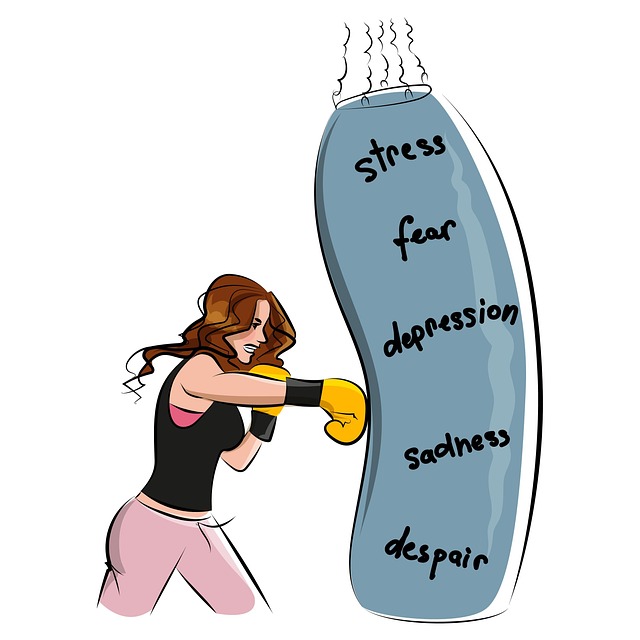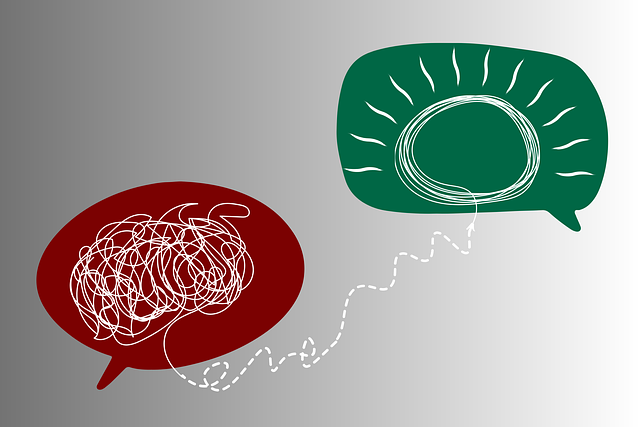Burnout among healthcare providers is a growing concern driven by stressful work environments and heavy workloads. Early identification through tools like Aurora Mental Health Evaluations is crucial, as it encourages self-awareness exercises to manage emotional states. Integrating regular mental health evaluations aligns with Mind Over Matter principles, promoting therapy sessions for stress, anxiety, and depression prevention. Organizations can enhance provider resilience by implementing supportive work environments, including Aurora Mental Health Evaluations, team-building activities, flexible arrangements, and open communication. Aurora Mental Health Therapy offers comprehensive assessments and Trauma Support Services to build resilience through coping mechanisms, stress management, and emotional regulation strategies, ultimately benefiting both providers and patients.
Healthcare provider burnout is a growing concern, impacting quality of care and patient outcomes. This article explores comprehensive strategies to prevent and alleviate burnout among healthcare professionals. We delve into the causes and effects of this widespread issue, highlighting the crucial role of mental health evaluations in early detection and prevention. Therapeutic interventions, supportive work environments, and innovative approaches like Aurora Mental Health Therapy offer effective solutions. By implementing these strategies, healthcare organizations can foster resilience and maintain a dedicated workforce.
- Understanding Burnout Among Healthcare Providers: Causes and Effects
- The Role of Mental Health Evaluations in Preventing Burnout
- Therapeutic Interventions for Burnout Relief
- Creating a Supportive Work Environment to Foster Resilience
- Aurora Mental Health Therapy: A Comprehensive Approach to Burnout Prevention
Understanding Burnout Among Healthcare Providers: Causes and Effects

Burnout among healthcare providers is a growing concern within the industry, affecting both mental and physical health. It stems from prolonged exposure to stressful work environments, heavy workloads, and emotional demands. Healthcare professionals, especially those in demanding fields like mental health, often juggle intense patient cases, long working hours, and high-pressure decision-making, which can lead to exhaustion and a sense of detachment from their work.
The consequences of burnout are far-reaching. It not only impacts the provider’s ability to deliver quality care but also contributes to increased absenteeism, decreased job satisfaction, and potential career changes. Recognizing the signs of burnout is crucial; common indicators include chronic fatigue, cynicism, detachment from patients, reduced performance, and even physical symptoms like headaches or gastrointestinal issues. Aurora Mental Health Evaluations can play a vital role in identifying these issues early on, while therapy and empathy-building strategies can be powerful tools for promoting emotional well-being and anxiety relief among healthcare providers.
The Role of Mental Health Evaluations in Preventing Burnout

Mental health evaluations play a pivotal role in healthcare provider burnout prevention. These assessments go beyond identifying clinical disorders; they foster self-awareness exercises that help professionals understand their emotional states and triggers. By integrating Aurora Mental Health Evaluations, therapists can proactively address issues such as stress, anxiety, and depression before they escalate into full-blown burnout. This proactive approach aligns with the foundational Mind Over Matter principles, empowering healthcare providers to manage their mental well-being effectively.
Regular mental health evaluations enable continuous improvement in depression prevention strategies. Through therapy sessions, healthcare workers can learn coping mechanisms that enhance resilience and promote work-life balance. By acknowledging the impact of stress on their overall well-being, providers are better equipped to navigate the demanding nature of their professions, ensuring they remain engaged and compassionate in patient care long-term.
Therapeutic Interventions for Burnout Relief

Therapeutic interventions play a pivotal role in alleviating burnout among healthcare providers. Aurora Mental Health evaluations can be a powerful tool to identify underlying issues contributing to burnout, offering personalized therapy recommendations. Therapy sessions focusing on emotional well-being promotion techniques have proven effective in enhancing resilience and coping mechanisms. These sessions provide a safe space for professionals to process their experiences, manage stress, and improve self-care practices.
Incorporating Mental Wellness Journaling Exercises into routine practice can be a simple yet impactful guidance. Journaling allows healthcare providers to reflect on their feelings, set boundaries, and prioritize self-care. Additionally, engaging in evidence-based therapy types, such as cognitive-behavioral therapy (CBT), can help reframe negative thought patterns associated with burnout. Mentoring programs and peer support networks also contribute to a supportive environment, fostering open communication and shared strategies for stress management, further enriching the emotional well-being promotion techniques available to healthcare professionals.
Creating a Supportive Work Environment to Foster Resilience

In creating a supportive work environment, healthcare organizations can play a pivotal role in fostering resilience among providers. This involves cultivating a culture that prioritizes mental well-being and encourages open communication. Regular Aurora Mental Health Evaluations can help identify burnout risks early on, enabling targeted interventions. Through team-building activities and social gatherings, colleagues can strengthen bonds, providing emotional support to one another. Additionally, implementing flexible work arrangements and ensuring adequate resources can alleviate stress, fostering a positive mindset.
Promoting positive thinking through mindfulness practices and gratitude sessions has proven effective in burnout prevention strategies for healthcare providers. Encouraging open dialogue and feedback mechanisms allows professionals to share their experiences and concerns without fear of judgment. Effective communication strategies, when embraced by the organization, can enhance collaboration, reduce conflicts, and create a more harmonious atmosphere. Ultimately, these initiatives contribute to a resilient workforce better equipped to handle the challenges inherent in providing quality care.
Aurora Mental Health Therapy: A Comprehensive Approach to Burnout Prevention

Aurora Mental Health Therapy takes a comprehensive approach to burnout prevention, recognizing that healthcare providers’ well-being is intricately linked to their patient care. This involves a multi-faceted strategy that includes regular Aurora Mental Health Evaluations to assess not just mental health status but also potential risks and resilience factors. By integrating Trauma Support Services, the program ensures that professionals can manage any underlying trauma that may contribute to burnout.
The therapy focuses on building resilience, a key component in preventing burnout, by teaching effective coping mechanisms, stress management techniques, and emotional regulation strategies. This holistic approach not only equips healthcare providers with tools to navigate their own mental health challenges but also enhances their ability to connect and support their patients on their journey to recovery.
Healthcare provider burnout is a growing concern, but with the right strategies, it can be prevented. By understanding the causes and effects of burnout, utilizing mental health evaluations, exploring therapeutic interventions, fostering supportive work environments, and considering comprehensive approaches like Aurora Mental Health Therapy, we can create a more resilient healthcare system. These strategies not only benefit individual providers but also enhance patient care and overall organizational success.













